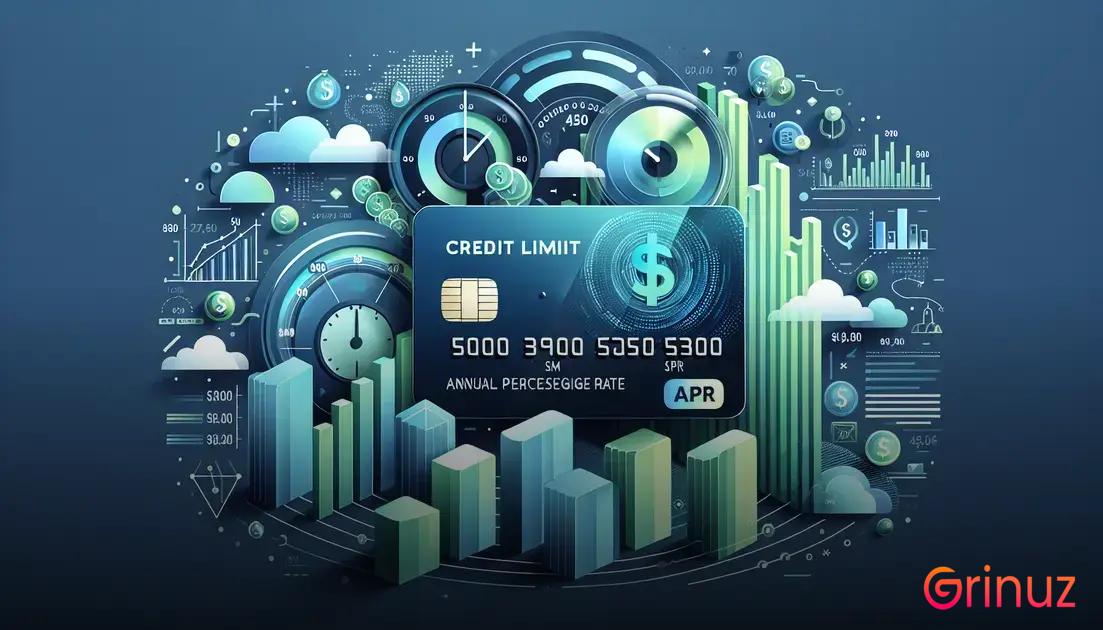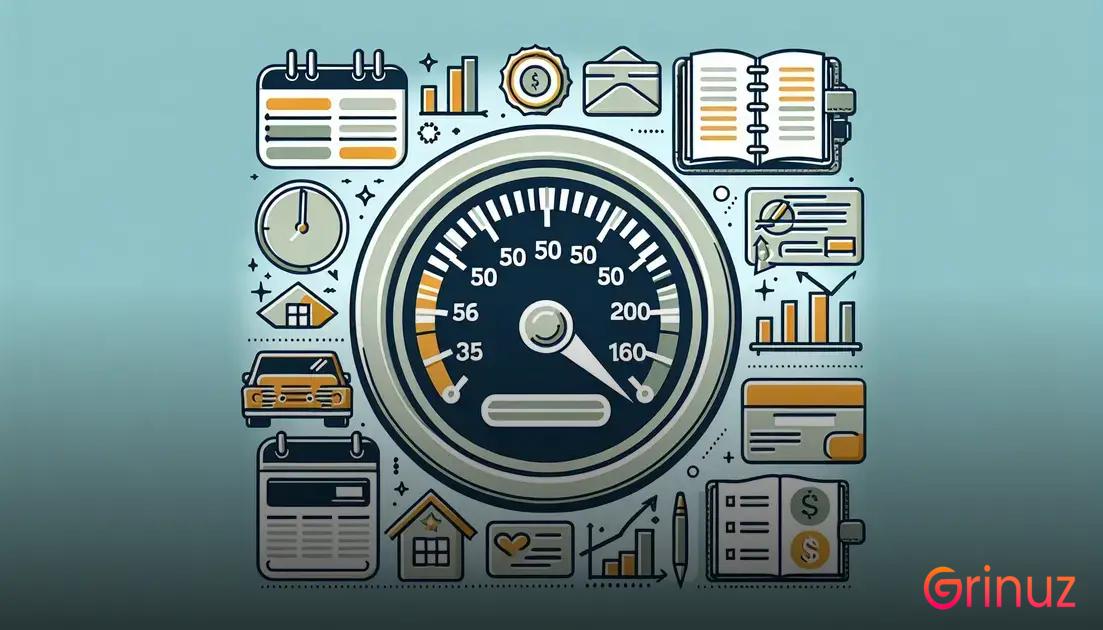Understanding how a credit card works is essential for managing your finances effectively.
The Basics of Credit Cards
Credit cards are financial tools that allow individuals to borrow money up to a certain limit for purchasing goods and services. When you use a credit card, you’re essentially borrowing money from the card issuer, which you’ll need to pay back within a specified period to avoid interest charges.
Key Components of Credit Cards:
- Credit Limit: This is the maximum amount you can borrow using the card. It’s determined by the card issuer based on your creditworthiness.
- Annual Percentage Rate (APR): This is the interest rate you’ll be charged if you carry a balance on your card from month to month. Understanding your APR is crucial as it determines how much extra you’ll pay if you do not pay off your balance in full.
- Minimum Payments: Each month, you’ll be required to make a minimum payment, which is typically a small percentage of your outstanding balance. While paying the minimum will keep your account in good standing, it may result in accruing significant interest over time.
- Credit Scores: Using credit cards responsibly can help build your credit score, which is a critical factor in qualifying for loans and favorable interest rates. On-time payments and keeping your balance low compared to your credit limit are positive practices.
Understanding the inner workings of your credit card can empower you to use it wisely and leverage its benefits while avoiding pitfalls like high-interest debt.
How credit limits and APR work

When it comes to understanding how credit limits and APR work, it’s essential to delve into the specifics of these terms. Your credit limit is the maximum amount you are allowed to borrow using your credit card. This limit is determined by your credit card issuer based on factors like your credit history, income, and overall financial health. It’s crucial to stay within this limit to avoid penalties and negative impacts on your credit score.
APR, or Annual Percentage Rate, is the interest rate charged on any outstanding balance you carry on your credit card. If you pay off your balance in full each month, you won’t have to worry about APR. However, if you carry over a balance, the APR will determine the amount of interest you’ll accrue. APR can be either fixed, remaining the same over time, or variable, changing based on market conditions.
Moreover, understanding the difference between ‘introductory APR’ and ‘regular APR’ is crucial. Many credit cards offer a low or 0% introductory APR for a set period, which can be beneficial for making large purchases or transferring balances. After the introductory period, the regular APR kicks in, which is typically higher. Knowing your APR and how it works can help you manage your credit card debt more effectively.
By comprehending these critical concepts, you can use your credit card more wisely and avoid common pitfalls like high-interest charges and maxed-out credit limits.
Understanding minimum payments
Minimum payments are the smallest amount you must pay on your credit card balance each month. Typically, this amount is calculated as a small percentage of your total outstanding balance or a fixed dollar amount, whichever is greater.
Paying only the minimum can lead to accumulating interest charges, as the remaining balance will continue to accrue interest. This can make it difficult to pay off your debt over time. To avoid high interest fees, it is recommended to pay more than the minimum whenever possible.
Additionally, consistently paying just the minimum can negatively impact your credit score. Credit card companies report your payment behavior to credit bureaus, and consistently low payments may indicate financial instability. This could affect your ability to secure loans or other forms of credit in the future.
Understanding how to manage your minimum payments is crucial in maintaining healthy credit card usage. Always aim to pay a significant portion of your balance to avoid interest accumulation and maintain a positive credit score.
The importance of credit scores

Credit scores play a crucial role in today’s financial world. They are pivotal for determining an individual’s creditworthiness and affect a plethora of financial decisions. Having a good credit score can be the difference between approval and denial for loans or credit cards.
Credit bureaus calculate these scores based on various factors, with payment history and credit utilization being two of the most significant. How promptly you pay your bills and how much credit you’re using compared to your credit limit immensely influence your score.
Another essential factor is the length of credit history. Lenders favor individuals who have longer credit histories because it provides a more comprehensive view of their financial behavior. Therefore, maintaining older credit accounts can positively impact this aspect.
Additionally, applied but unused credit can also affect your score. Opening too many accounts in a short time may signal financial distress to creditors. It’s crucial to apply for new credit sparingly and only when necessary to maintain a stable credit profile.
Lastly, credit mix refers to the diversity of credit accounts you have, such as credit cards, mortgages, and auto loans. A varied credit mix can enhance your score as it shows you can manage different types of credit responsibly.
Understanding these components and how they interconnect helps in managing and improving your credit score, which in turn opens doors to better financial opportunities.
How to use a credit card responsibly
To use a credit card responsibly, it’s crucial to understand the balance between spending and repayment. First, always aim to pay your full balance each month. This prevents interest accumulation and helps maintain a good credit score.
Track Your Spending
Keep a close eye on your expenditures. Use budgeting tools or apps to monitor your credit card transactions regularly. This ensures you stay within your budget and helps prevent overspending.
Avoid Late Payments
Missing a payment can result in late fees and negatively impact your credit score. Set up payment reminders or enroll in automatic payments to ensure your bills are paid on time.
Understand Your Credit Utilization Rate
Your credit utilization rate is the ratio of your outstanding balance to your credit limit. A high utilization rate can hurt your credit score. Aim to keep this rate below 30% by paying down your balances.
Review Your Statements
Regularly review your credit card statements for any unauthorized charges or errors. Reporting such issues promptly can protect you from fraud and potential financial loss.





